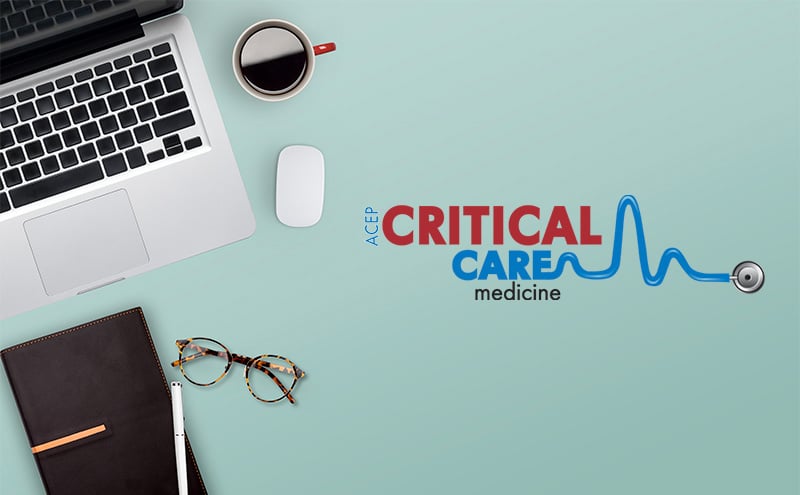
From the Chair

There is no good way to start this piece. As I sit here, on March 18th, 2020, writing that we are in unprecedented times is already a laughable understatement. As you read this, weeks from now when it is published, you will have had clinical experiences I cannot yet imagine. Perhaps, then, it is better to stick to concepts, to stick to what we do know.
Emergency medicine and critical care physicians are leading the way in this pandemic, not only providing the clinical care in the frontlines of the emergency departments and ICUs, but using their skills to head teams, develop initiatives, and keep paving the way forward. We have much to offer our EM colleagues, who are looking for guidance on ventilator management and longer-term critical care as we anticipate lack of ICU beds. We are obligated to share our experiences on the front lines with our colleagues in the ICU, so they understand the challenges of assessing undifferentiated patients, allowing us to all improve our processes. We have expertise to share with our dedicated colleagues from other specialties who are jumping in to help with the anticipated tidal wave of critically ill patients.
Right now, we have far more questions than answers. As always, we strive to put our patients first. Yet, in the face of limited personal protective equipment, we struggle with ensuring that we and our coworkers are protected, as well. We know that keeping our healthcare workforce safe, healthy, and fit for duty is essential to saving our patients’ lives. Many of us are concerned for our patients with other illnesses, as we know that MIs and strokes will not simply disappear in the face of a pandemic. How do we continue to provide our excellent care for our other patients, without putting them at increased risk or deviating from best practices? How will we distribute finite resources for what may, at times, feel like an infinite need? Over the next few weeks to months, we will develop answers to these questions, likely change them, and then likely change them again as the situation evolves. One thing I am confident in is the dedication, compassion, and leadership from our group and our colleagues in healthcare to keep working on these issues.
I have always loved being a physician. This is not my job; it is my calling. Looking ahead to the months to come, I also know that I would not trade being an emergency medicine-critical care physician for anything in the world. I have never been more proud to work in healthcare, and to work with all of you. We will get through this, together.
Susan R. Wilcox, MD, FACEP, FCCM



